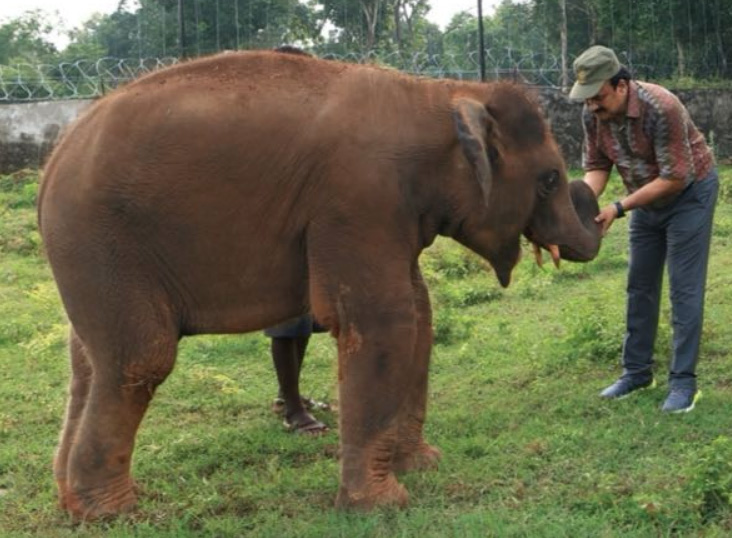Bhubaneswar: PCCF Wildlife Susanta Nanda has adopted several innovative methods to handle Man-Elephant Conflict. Radio-Collaring the pachyderms is one of these initiatives, which is paying results ands scripting success.
In a remarkable achievement, the State Wildlife Organization has successfully conducted radio collaring of problematic wild elephants, especially tuskers, which is now helping the forest officials in tracking the movement of the jumbo in deep forest and management of human-elephant conflict.
Recently, the third elephant in the Bonai area under the Sundargarh Forest Division was successfully radio collared.
“As part of managing human-elephant conflicts, the wildlife wing started tracking the problematic elephants this year after radio-collaring them. The third one to be successfully collared today,” PCCF Susanta Nanda said while lauding the forest team who made it possible.
Following the path-breaking experiments of radio-collaring two problematic tuskers at Angul-Pallahara and Khordha Forest Divisions, the third tusker was radio-collared in the Bonai area in Sundargarh. All the three wild elephants are doing fine and the forest officials are able to track them and prevent them from entering human settlements, forest officials said.
The Forest Department has identified 18 problematic wild tuskers in different forest areas of the State who have a track record of killing human beings and breaking houses by straying into human habitats.
“We have identified 18 problematic wild tuskers from the last census and permission has been given to DFOs to monitor their movements by radio-collaring them,” PCCF Shri Nanda said.
These wild tuskers have a track record of either killing human beings or breaking houses by straying into human habitats. We will monitor their movements for 24 hours by radio-collaring them, informed the PCCF Wildlife.
Using special devices and techniques, the forest officials are now able to track the movement of the elephants. If any elephant would start moving towards habitation, the forest officials are now able to take timely action to prevent any such conflict, he said.
Further, the injured elephant, which would have been vulnerable to poaching will now be easier to track its movement to prevent any untoward event.
According to official sources, tagging the radio collar on the wild elephants has been a success in Karnataka and Tamil Nadu and it has yielded desired results.
To implement this, the State had also signed an MoU with the Asian Nature Conservation Foundation and the Institute of Physics.
The Forest Department also plans to put up an early warning system to caution people about the movement of elephants in their areas. There will be red lights and sirens to inform people about the presence of elephants in the human habitation area, they said.


